You’re at your desk, long after business hours, staring at a pile of receipts and a blinking cursor in your accounting software. You told yourself you’d “catch up on bookkeeping” tonight—but now, an hour in, nothing makes sense.
The numbers aren’t adding up, your bank balance looks off, and tax season is creeping closer like a horror movie villain. You know you need help, but can you afford it? What even is the average cost of bookkeeping services? Let’s get into it and find you the help you deserve.
What Do Bookkeepers Do?
A bookkeeper keeps your money organized, tracks what’s coming in and going out, and makes sure your financial transactions aren’t a total mess. Here’s what a good bookkeeper does (so you don’t have to):
- Records every transaction—No more guessing where that $347 charge went.
- Reconciles bank accounts—Because “close enough” doesn’t cut it when it comes to your finances.
- Keeps you paid (and paying on time)—No more chasing invoices or forgetting to pay bills.
- Prepares financial reports—So you actually know if your business is making money.
- Makes tax season less terrifying—A bookkeeper keeps everything clean and organized, so you’re not panicking in April.
Bookkeeping Fee Structures

Knowing how bookkeepers price their services can help you decide what works best for your business (and avoid overpaying).
Hourly Rate
Some bookkeepers charge an hourly rate, which ranges from $30 to $100 per hour, depending on experience and location. If you have minimal bookkeeping needs or just need occasional help—this is a cost-effective route.
Monthly Retainer
A monthly retainer gives you a set fee for ongoing bookkeeping services. This usually includes transaction tracking, bank reconciliations, and financial reports. Retainers typically range from $300 to $2,500 per month, depending on business size and complexity.
Flat Fee
Some bookkeepers offer flat-fee pricing for specific services, like tax prep, payroll processing, or QuickBooks setup. This is great if you need one-off services without committing to long-term bookkeeping help.
Percentage of Revenue
A few bookkeeping services charge a percentage of your monthly revenue (often 1-5%). This is cost-effective for businesses with fluctuating income, but it also means your bookkeeping costs go up as your revenue grows—something to keep in mind if you’re scaling fast.
Part-Time
Some businesses hire a part-time bookkeeper instead of outsourcing. This works well if you need regular support but don’t want the cost of a full-time hire. Part-time bookkeepers typically earn $20 to $50 per hour, depending on experience.
Factors That Affect Bookkeeper Costs

Several factors influence how much you’ll pay, from where you’re located to the bookkeeper’s level of expertise. Here’s what impacts bookkeeping rates the most:
Location: Big City vs. Small Town Pricing
Where your bookkeeper is based can have a huge impact on pricing. In large cities, where the cost of living is higher, bookkeeping rates tend to be steeper. A bookkeeper in New York or San Francisco might charge $75-$150 per hour, while someone in a smaller town or rural area may charge $30-$60 per hour.
If you outsource to a remote bookkeeper, you might save money by working with someone in a lower-cost area—but always prioritize experience over bargain pricing.
Education Level: Does a Degree Matter?
Some bookkeepers have formal accounting degrees or certifications, while others have hands-on experience but no official credentials. The more qualified a bookkeeper is, the more they’ll charge.
- Entry-level bookkeepers (no degree, minimal experience): $20-$40 per hour
- Certified bookkeepers (CB or similar credential): $40-$75 per hour
- Bookkeepers with accounting degrees: $60-$100+ per hour
Outsourcing Bookkeeping vs. DIY Bookkeeping

When it comes to managing your business’s finances, you have two choices: hire a professional or do it yourself. One saves time, the other saves money—but does it really?
Outsourcing Bookkeeping
Bringing in a professional bookkeeper means letting an expert handle your financial tracking so you’re not stuck trying to Google your way through tax season. Outsourcing can help keep your books clean and your stress levels low.
Benefits
- Saves time—No more late nights buried in spreadsheets.
- Reduces costly mistakes—A professional knows how to keep everything accurate and compliant.
- Keeps you tax-ready—No more last-minute scrambling when deadlines hit.
- Scales with your business—As your business grows, your bookkeeping needs do too.
- Provides expert insights—A good bookkeeper doesn’t just track your numbers; they help you make smarter financial decisions by providing you with thorough financial statements.
Drawbacks
- Higher upfront cost—Professional services come with a price tag.
- Less control—Someone else is managing your books, so you need to trust them.
- Takes time to find the right fit—Not all bookkeepers are created equal, and hiring the wrong one can be just as stressful as doing it yourself.
Who Should Outsource?
If bookkeeping is stealing your time, causing stress, or leading to mistakes, outsourcing is a smart move. It’s especially valuable for small business owners who want to focus on growth instead of financial admin.
DIY Bookkeeping
DIY bookkeeping might seem like a reasonable choice. With software like QuickBooks or Xero, many entrepreneurs attempt to handle their books themselves—at least until they hit a breaking point.
Benefits
Lower cost—You’re only paying for software instead of hiring a bookkeeper.
Full control—You oversee every transaction and financial decision.
Learn as you go—If you like working with numbers, you’ll gain a better understanding of your business finances.
Drawbacks
- Takes up valuable time—Every hour spent on bookkeeping is an hour not spent growing your business.
- High risk of errors—A single mistake can throw off your records or create tax issues.
- It can become overwhelming—Especially when your business starts to grow and transactions pile up.
Who Should DIY?
If you have a low volume of transactions, the patience to learn, and the time to stay consistent, DIY bookkeeping might work—for now. But as your business grows, outsourcing will become the better option.
What to Look for in a Full-Time Bookkeeper

You need someone who knows their stuff, keeps your finances in check, and doesn’t ghost you when tax season rolls around. Here’s what to look for when hiring a bookkeeper:
-
Experience in Your Industry
Not all bookkeeping is the same. A bookkeeper who works with restaurants will have a different skill set than one who handles contractors or e-commerce businesses. Find someone who understands your industry’s financial quirks.
-
Familiarity with Your Preferred Software
QuickBooks, Xero, Wave—whatever you use, make sure your bookkeeper is comfortable with it. The last thing you want is someone “learning on the job” with your financials.
-
Attention to Detail (a.k.a. No Costly Mistakes)
A great bookkeeper catches errors before they turn into expensive problems. They should be able to spot a missing decimal, track down a misplaced transaction, and keep your books airtight.
-
Communication Skills That Don’t Make You Want to Scream
You shouldn’t have to chase down your bookkeeper for updates. Look for someone who keeps you informed and explains financial details in plain English—not accountant-speak.
-
Transparency and Trustworthiness
Your bookkeeper handles your business’s money—so trust is non-negotiable. Ask for references, check reviews, and make sure they have a solid track record before handing over the keys to your books.
Average Cost of Bookkeeping FAQs
How much should you pay for bookkeeping?
The average rate of bookkeeping varies based on business size, complexity, and service level. Small businesses typically spend 1-5% of their monthly revenue on bookkeeping services. Rates range from $300 to $2,500 per month for outsourced bookkeeping, while in-house bookkeepers may cost $40,000 to $60,000 per year plus benefits.
How much are general bookkeeping fees?
General bookkeeping fees depend on experience and location. In Seattle, bookkeepers charge between $30 to $100 per hour, while nationwide averages range from $20 to $60 per hour. Monthly bookkeeping packages typically cost $300 to $2,500, depending on transaction volume and service complexity.
How much should I pay someone to do my QuickBooks?
Hiring a QuickBooks expert costs between $50 to $150 per hour, depending on experience and certification. For ongoing QuickBooks management, businesses typically pay $500 to $2,500 per month based on service needs like reconciliations, payroll, and tax preparation.
Stop Wasting Time—Find Your Perfect Bookkeeping Match
How many more nights are you going to spend buried in receipts, second-guessing your numbers, and wondering if you’re doing this bookkeeping thing right? Hey, your time is too valuable for this.
We’ll take the stress off your plate. No more hunting for the right bookkeeper—just a vetted expert, perfectly matched to your business. Let’s find your perfect match.




